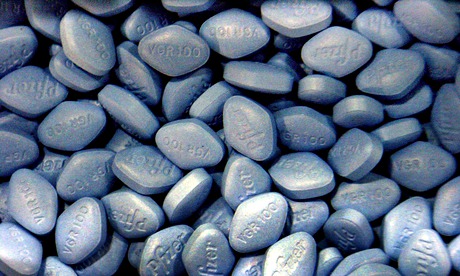
When I had a vasectomy a few years ago it never occurred to me that it might have implications for my health. I just knew I didn't want kids. But men considering the snip now are likely to, as research from Harvard indicates it increases the chance of developing prostate cancer by 10%.
And there's worse: Harvard's data suggests that vasectomies are associated with particularly aggressive varieties of prostate cancer, and a 19% higher risk of dying from the disease. I challenge any man reading this not to squirm at the idea of facing not just prostate cancer, but some amped-up full-fat version. I know I did.
Let's remember, percentage increases can be misleading. The overall rate of prostate cancer found in this trial was just over 12%, while the higher rate for men with vasectomies was heading towards 14%. As for the lethal rate, that goes up from 1.6% to 1.9%. Is it really enough to warrant using other forms of contraception for decades, especially less reliable ones? The spontaneity a vasectomy can afford is a real benefit too.
It's not as though the female pill is 100% risk-free either. Hormonal contraception marginally increases the incidence of breast cancer, thrombosis and other conditions. It would be unforgivable for any man to tell a female partner that he's gone off the idea of a vasectomy after reading this research, and would rather she stayed on the pill.
Weighing up the pros and cons has got to be up to each individual man, or each couple, in the context of a long-term relationship – although "my body my choice" definitely applies to men as well as women. Having a vasectomy is frankly liberating, and it remains the most reliable way for men who don't want children (or more children) to take responsibility for their own fertility.
However, for too many men open discussion of their sexual health remains taboo. I've never heard anyone discuss being impotent, yet the vast numbers of blue pills issued each year can't all be going to male sex workers and the weekend-long orgy crowd. It's not just impotence that's stigmatised, either: any suggestion that you've got "a problem with your manhood" plays into classic male insecurities.
But it is indeed good to talk. When I discussed my vasectomy on social media after writing here about my experience of the male pill trials, a close friend asked me to walk him through the procedure and the aftermath. Even after reading the Harvard research I would still reassure him about his primary concerns – though of course if I'd known at the time, I would certainly have mentioned these minor increases in risk.
I definitely don't want to die of cancer if at all possible, so it's probably time to take both prostate and testicular cancer more seriously.
The classic 1980s Aids campaign said "Don't die of ignorance". The message still applies when it comes to testicular or prostate cancer. If you're experiencing anything abnormal from this list of symptoms – or this one – get it checked out. It's not the end of the world: of the men in the Harvard study who contracted prostate cancer, only 13% died from it. I've seen worse odds. But don't sit around and pretend it will just go away.

